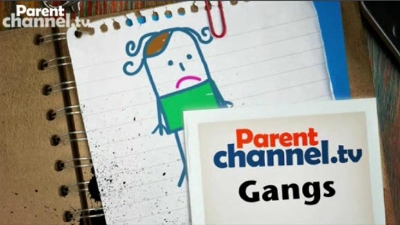 Go to main content
Go to main content
Archive Website of the UK government
Please note that this website has a UK government accesskeys system.
Main menu
Page menu
Newsroom

Video: gangs and your child
- Published: Wednesday, 13 October 2023
Why children join gangs and how you can help your child avoid them.
Can't see the video?

To play this video you need Adobe Flash Player version 9 or higher on your computer and have JavaScript enabled on your browser. Our Help with video files page gives advice if you are unsure how to do this. The Flash software is free.
Text version
Clement Harry, youth advisor: "You can't lump all young people into that word 'gang' and just assume that it's going to be trouble. You've got to differentiate - the behaviour of that group of people is just the issue here."
Patsy McKie, Mothers Against Violence: "Sometimes, those children don't actually go out to be part of a gang. They're in an area where there are gangs and people are saying 'You can't come over here', 'You can't come to this district', 'You can't do this', so now, there's safety in numbers."
There are lots of reasons why teens join gangs
Sinead: "I started hanging around with these girls at school and they were the ones who were going out round town, sleeping with men and I thought, 'I want to fit in so I'm going to start doing that'."
Chaz: "Everybody feels that they need somebody to like them so they just try and hang around with the people they find to have the most respect and you find most of the time they'll do all they can to respect from these people."
Jenna: "There's just nothing for us to do where I live so we just end up going to the park. People drink, smoke, just cause mischief, really, and they get into trouble, just because people are bored and there's nothing to do."
How do I avoid my teen joining a gang?
Patsy McKie: "Young people are saying now, when we go to people who are in gangs, 'The gangs are my family' and I'm thinking, 'Why are they thinking the gangs are their families?'. What they find out when they do end up in prison is that the gangs don't actually even bother about them. But they're thinking that they're a family so it tells me that the family aspect of life is missing."
Jenna: "A lot of the time parents just feel that they don't need to spend time with their kids, you know. They come in from work, sit in front of the TV and just forget a lot of the time that they do need to spend time with their kids, talk to them and have that relationship with them. That's when kids start to go out and off the rails - when they feel that their parents aren't there for them, really."
Patsy McKie: "It is important that you appreciate your children. It is important that you find out more about them, what they're doing and who they're with, so at least you can guide them. Communication is paramount - they must listen to them."
Encourage talents and interests to help keep them out of trouble
Sinead: "I used to love fighting, for the fact that it gave me a rush, that adrenalin, that pumping. As soon as I'm spinning around on my head or dancing I'm getting that same rush and I love dancing because it's a non-violent, non-contact sport and it gives me the same rush."
It's never too late to build a relationship with your teen
Jenna: "Do things together, go shopping, just go for some food, to the cinema. Just do anything to keep that relationship going because it will mean a lot to young people."
Sinead: "I grew up in a really, really good family and I really should have appreciated them a lot more than I did do. I didn't care that I was staying out all night, not telling my mum where I was and letting the police bring me home. I can talk very, very healthily and openly with my mum now, and that's something I thought I'd never be able to do."
Useful tips:
- spend time with your teen
- encourage them to spend time on their interests and talents
- get to know who they are hanging out with
 Facebook
Facebook Twitter
Twitter StumbleUpon
StumbleUpon Delicious
Delicious Reddit
Reddit
